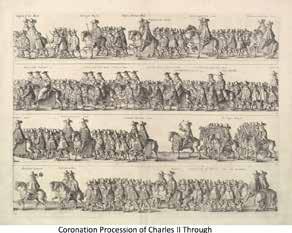
4 minute read
Write It, Say It, Message It!
Got something to shout about?
Maybe you want to respond to an article or want to spread the word about something locally?
Advertisement
Email us at hello@lifeinmagazines.co.uk or text us on 07403 550068. You can also tag us in on social media @lifeinmags
Poetry corner
Our NHS Sell Off
We clapped for our doctors and nurses
The altruistic Nightingale heroes; Now they are slapped with curses And reduced to zero.
Their unremitting dedication
To save, heal and rejuvenate, Is the treasure of our nation
Emitting waves of hope and light.
In darkness they walk with lanterns Selflessly holding patients’ hands, Empathetically bandaging, whispering, Nurses change sheets and dirty pans.
Scandals haunt our sacred NHS, As privatisation sweeps in by stealth. Feel the wallet before your pulse!
Greedy corporates suck up public wealth.
Patients agonise while managers smile, The sick on trolleys beg for a bed. Bed blocking by the elderly; a system defiled, Wards filled with panic and dread.
We watch the daily horror show On TV, of staff overworked and stressed. We sense this service will go, Appalled at hundreds dying needless deaths.
This was Britain’s jewel in the crown Free at the point of delivery.
Now shamelessly defunded and drowned, Creating nationwide misery.
Sangita Kansal
A big thanks to...
The kind ladies at Downe Village church who let my nephew Teddy, who is 12 years old, help with the bell-ringing – you made a young man very happy!
Karen Coombs
The star response ( ) wins a £15 one4all digital gift card courtesy of The Bed Post (the-bedpost.co.uk). Email hello@lifeinmagazines.co.uk
A call to action
I’d like to ask other readers to sign Breast Cancer Now’s #NoTimeToWaste petition to demand the government invests in and takes urgent action to fix the breast screening programme. Diagnosing breast cancer early is SO important. I ignored the small lump I found and ended up running the full gamut of treatment. The wonderful thing to say is that, 20 years on, I am here to tell the story but we know that’s not always the case. Since the pandemic started, nearly 1 million fewer women have had breast screening in England resulting in thousands currently living undiagnosed. Yet opportunities to further invest in, modernise and improve the breast screening programme are being missed by the government. Please join me in doing what we women do best, standing with each other, by signing the charity’s #NoTimeToWaste petition to demand the government invests in and takes urgent action to fix the breast screening programme. Visit petition.parliament.uk/petitions/632824 Amanda Mealing (Breast Cancer Now Ambassador)
THIS MONTH WE…
Visited Biggin Hill Airport! The views (as you can imagine) were awesome. Pictured is Life In…Magazines’ Michelle Simpson (left) with Colin Hitchins and Georgina Godfree.
Met the wonderful Dina Asher-Smith at the grand opening of Norman Park Community Sports Centre.
Pictured is Life In…Magazines’ Lauretta Wright with Dina.
Took part in the first of a series of ‘Bromley Business Buddies’ showcases, organised by Splash Damage. Pictured are the company’s Chelsea Cox (left) and Ruby Plenderleith.
The Coronation

by PAM PREEDY, historian & author
There have been 39 coronation ceremonies for monarchs held in England. The first can be traced to the ceremony devised by Saint Dunstan for King Edgar’s crowning at Bath Abbey in 973AD (CE). The earliest form of an oath was an oral contract between a monarch and their people. The crown may have been an ornate helmet. At this time, there was no immediate (or automatic) right of succession, and so a coronation was an essential rite of passage.
Nowadays, a sovereign succeeds, by law, immediately upon the death of another, although the ceremony remains an important event early in a new reign. When William the Conqueror (1066-1087) was crowned on Christmas Day 1066, he began the tradition of holding a lavish coronation ceremony at Westminster Abbey.
The coronation emerged from a European tradition of increasing church involvement in the state, as well as the need to bring stability to often unstable societies in which several individuals had a claim to the throne. Central to the ceremony is the ‘unction’, the act of anointing a monarch with holy oil. It can be dated back to the 7th or 8th century. This signals the conferment of God’s grace upon a ruler.
Today, the United Kingdom is the only European monarchy to retain such a ceremony. As we all know, the last one was for Queen Elizabeth II on 2nd June 1953 and the next one is on 6th May 2023 for King Charles III. Every ceremony is different and organised and paid for by the state, with input from the new monarch. The coronation of Charles III has evolved from the coronation of King Edward VII.
When ceremonies go wrong…
• When the Archbishop of Canterbury tried to put the ring on the finger of Queen Victoria, he tried to ram it on her fourth finger, but it had been sized for the little pinky. After the ceremony she had to soak her hand in iced water to get the ring off.
• Sometimes the crown jewels had been lost or went missing. During the English Civil War, the crown jewels were pawned by the Royalists to pay for their part of the military conflict. After the war Oliver Cromwell melted down some of the jewels for his own use and Charles II had to commission new jewels for his coronation.
• At nine years old, Henry III was crowned at Glastonbury Abbey in 1220 with one of his mother’s circlets because his father, King John, had lost the crown jewels when his baggage train overturned in a bog. Four years later, with new crown jewels, Henry had a second proper coronation in Westminster Cathedral.
• George IV was married to Queen Caroline, whom he did not like. He did not want her at his coronation and she was determined to attend. She was left outside banging on the abbey doors, but the guards would not let her in and she was turned away.

We’re
delighted to announce...

